Shows
“Retrograde”: A Revival of Care
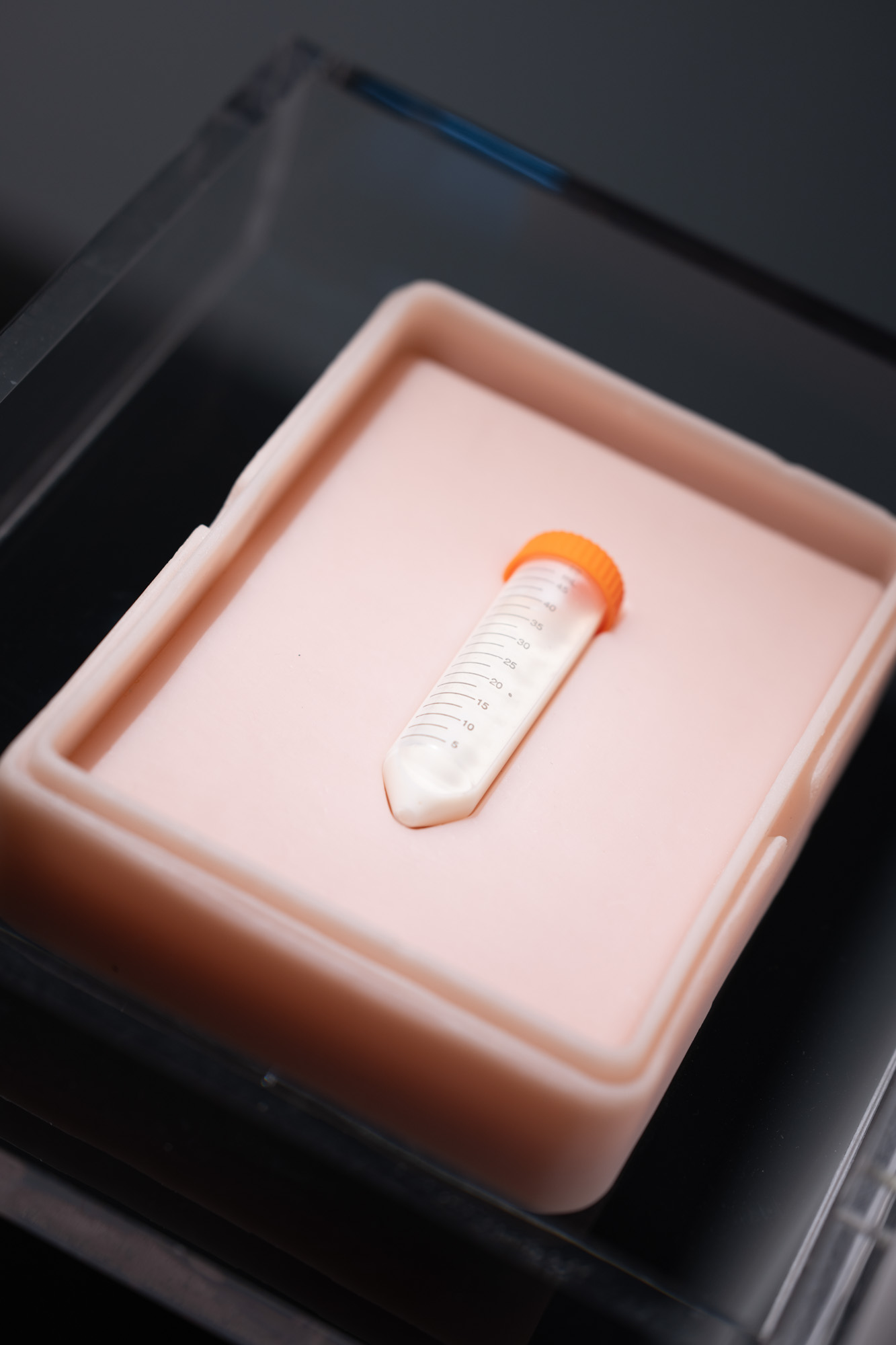
“Queer” is not just a signifier of one’s sexuality but also a way of thinking. Exploring this notion for the celebratory Pride Month, curator Cusson Cheng invited 11 local and international artists to participate in the LGBTQ-themed exhibition “Retrograde,” hosted by Galerie du Monde in Hong Kong. Instead of circulating the mainstream queer image, which boosts visibility often through performativity, Cheng chose a more subtle approach to reveal the sensibilities and injuries of the queer experience through works that blur the lines between nature and nurture, public and private.

At the entrance, Brooklyn-based artist Jes Fan’s wall-mounted installation Mother Is A Woman (Cream) (2019) comprises an unassuming tube of cream. Made from a cultured estrogen extraction from Fan’s mother’s urine sample, the cosmetic cream was applied onto the visitors during Fan’s previous show at Hong Kong’s Empty Gallery, as an attempt to explore the possibility of kinship formed between the visitors and Fan’s mother. Here, encased in an open silicone chest, the handmade cosmetic cream invited the visitors to delve into the idea of gender fluidity while affirming the mother’s own individual boundary. Alongside Fan’s work, Xu Guanyu’s Opened Closets (2019) from the Temporarily Censored Home series (2018– ) also negotiates personal boundaries within the family. The photograph features an array of magazine cutouts and printed pictures stuck around the bedroom of his family home in Beijing. Out of his urge to express his sexuality, Xu temporarily staged these printed materials across the domestic space during the absence of his family members, but he soon cleared them away after taking the photo. As a result, each photo exemplifies an intimate account experienced by members of the Asian queer community, whose childhood home is often infused with secrecy and apprehension.
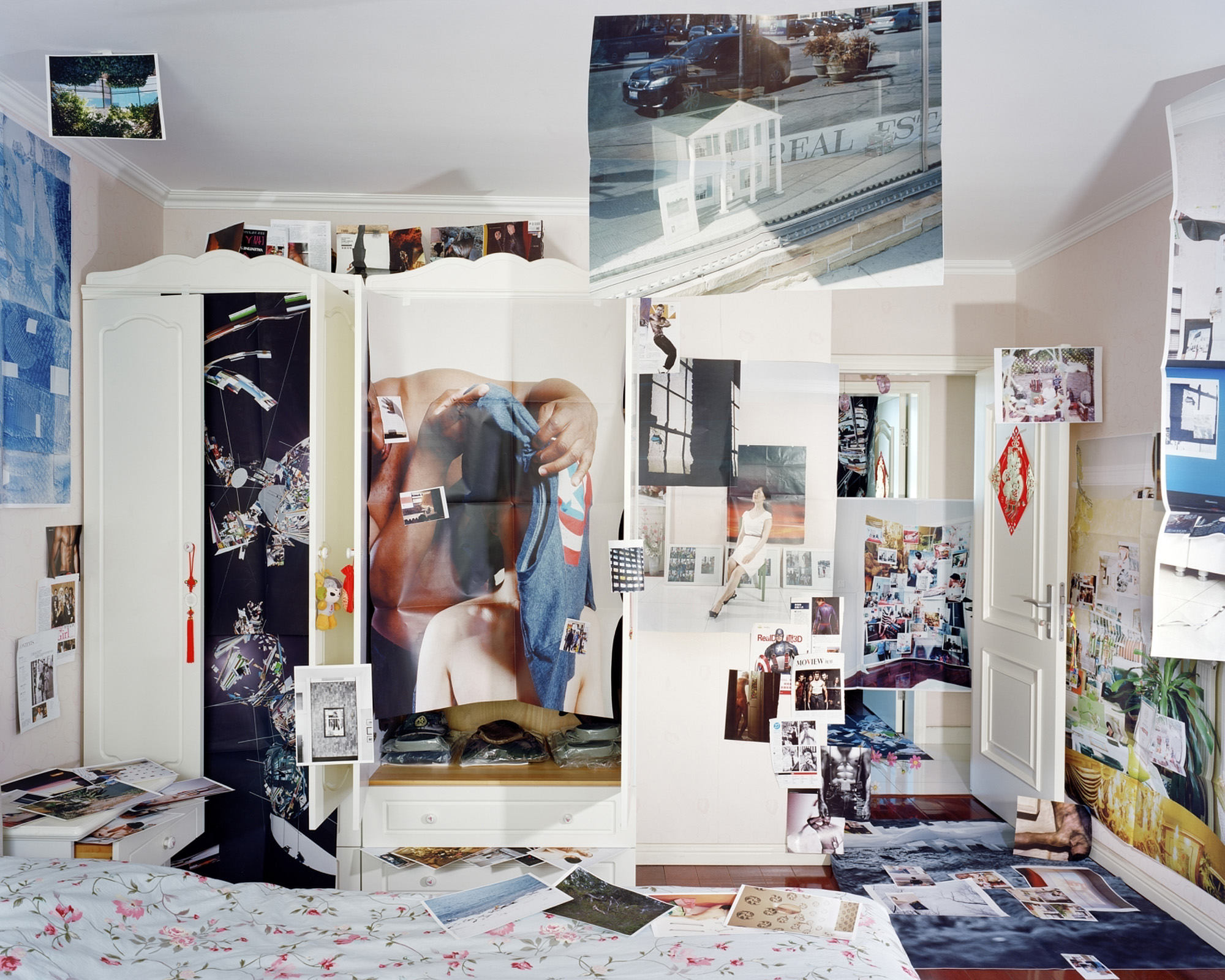
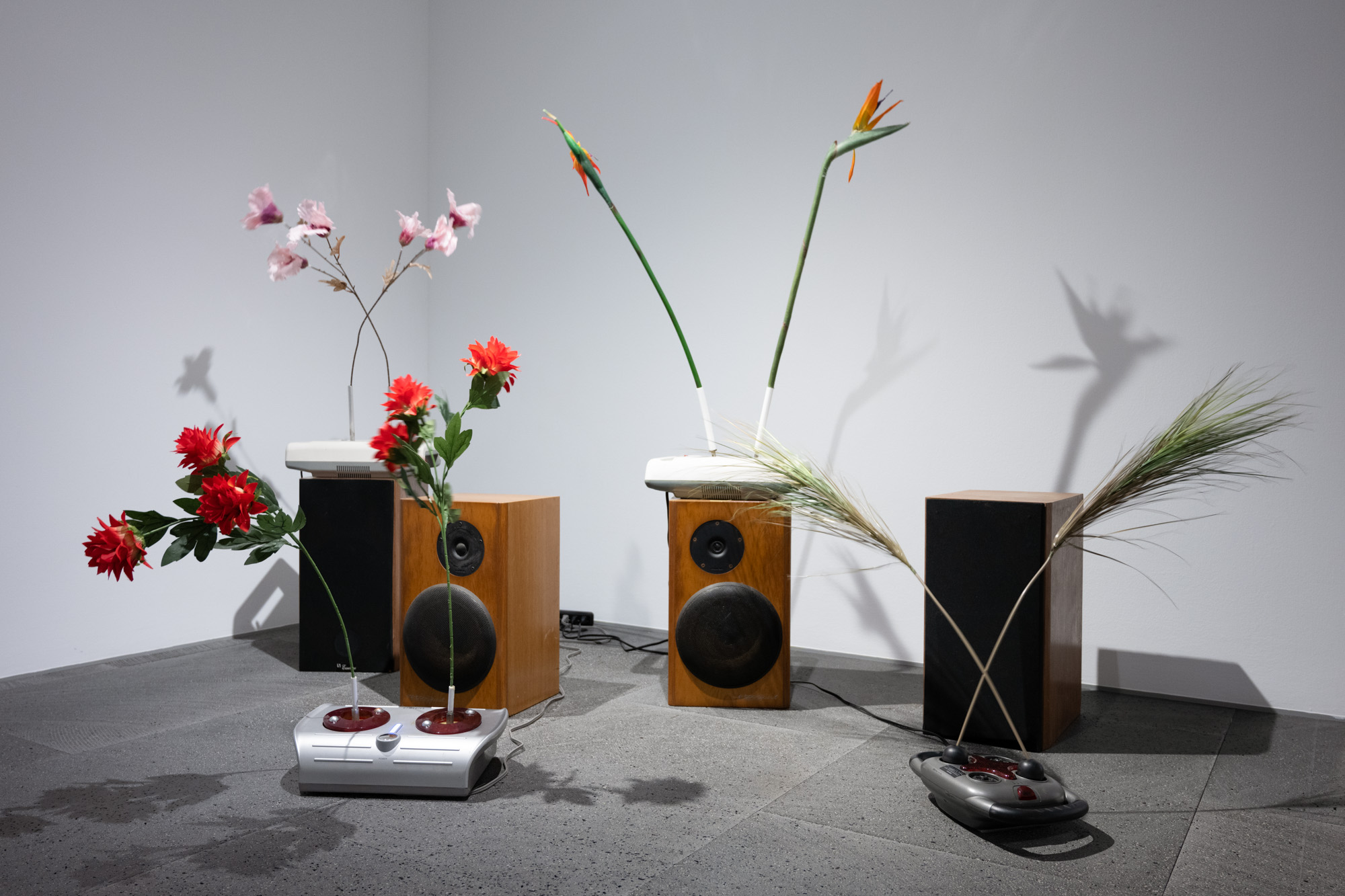
A shared and all-too-real circumstance of costly familial aspirations of success is comparable to Korean-American artist Rachel Youn’s kinetic installations, where artificial flowers are inserted into repurposed secondhand massagers. For example, Insatiable (2020) features crane flowers, spiraling from the massagers and clumsily bumping into one another, while in Punch-drunk (2022), two branches of mugunghwa, Korea’s national flower, constantly hit each other in a repetitive, intertwining dance. These awkward movements signal trials, errors, failures, and even trauma in the Korean family’s pursuit of the American dream, but by reviving these dysfunctional items, the installation is a rejection to conform. Akin to revealing the fallacies of societal expectations, Green Mok echoes a similar narrative in his series of photographs, Dancing in the dark: a certain time at certain places (2019–20), which positions a male nude in public spaces. In the fifth image, the man falls sideways into a spiral slide, evoking the image of Alice falling down the rabbit hole. Through this naïve posture, exposed in the darkness of a public playground, the image delves into the sense of being squeezed into an illusory private space.
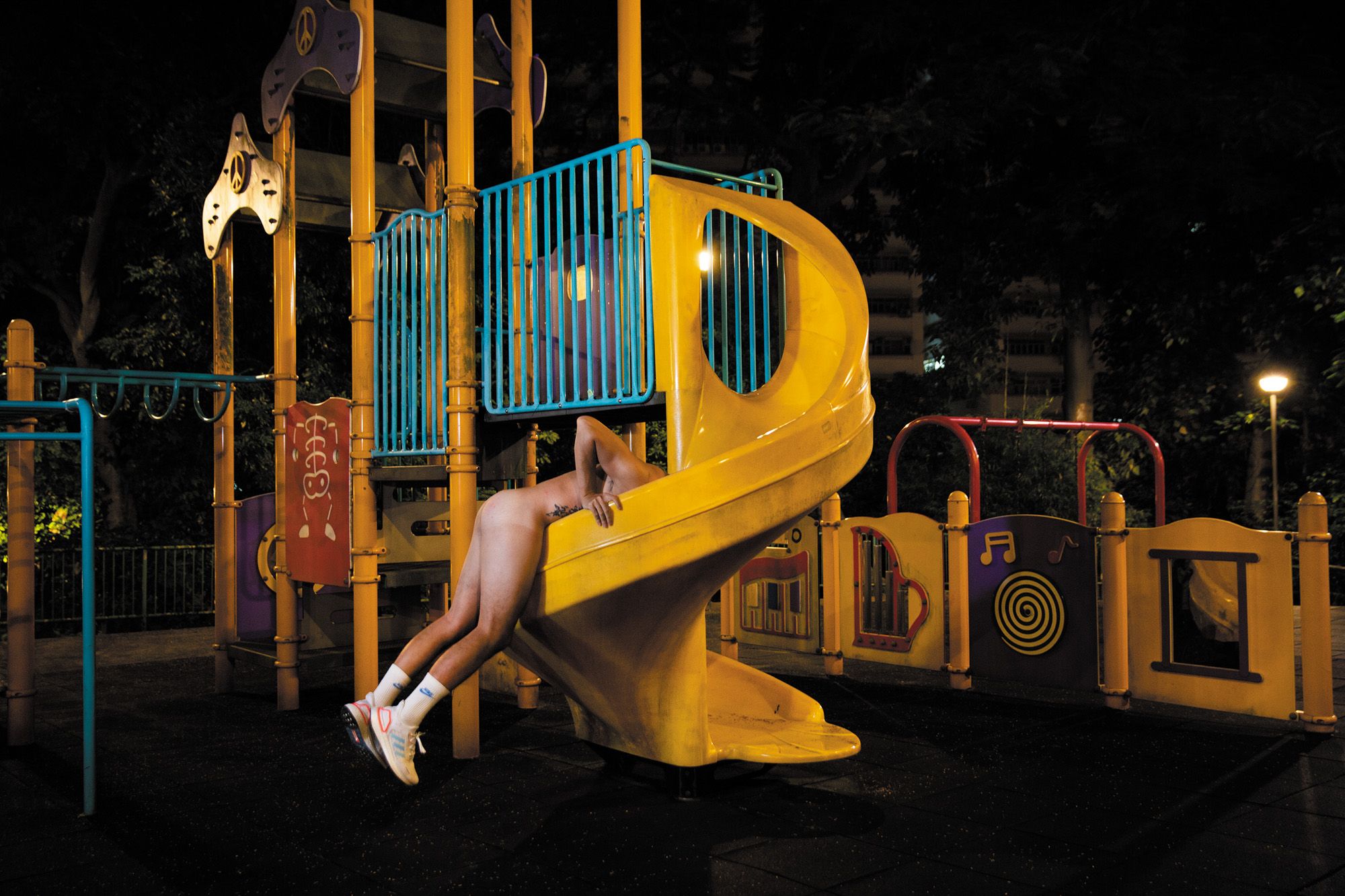
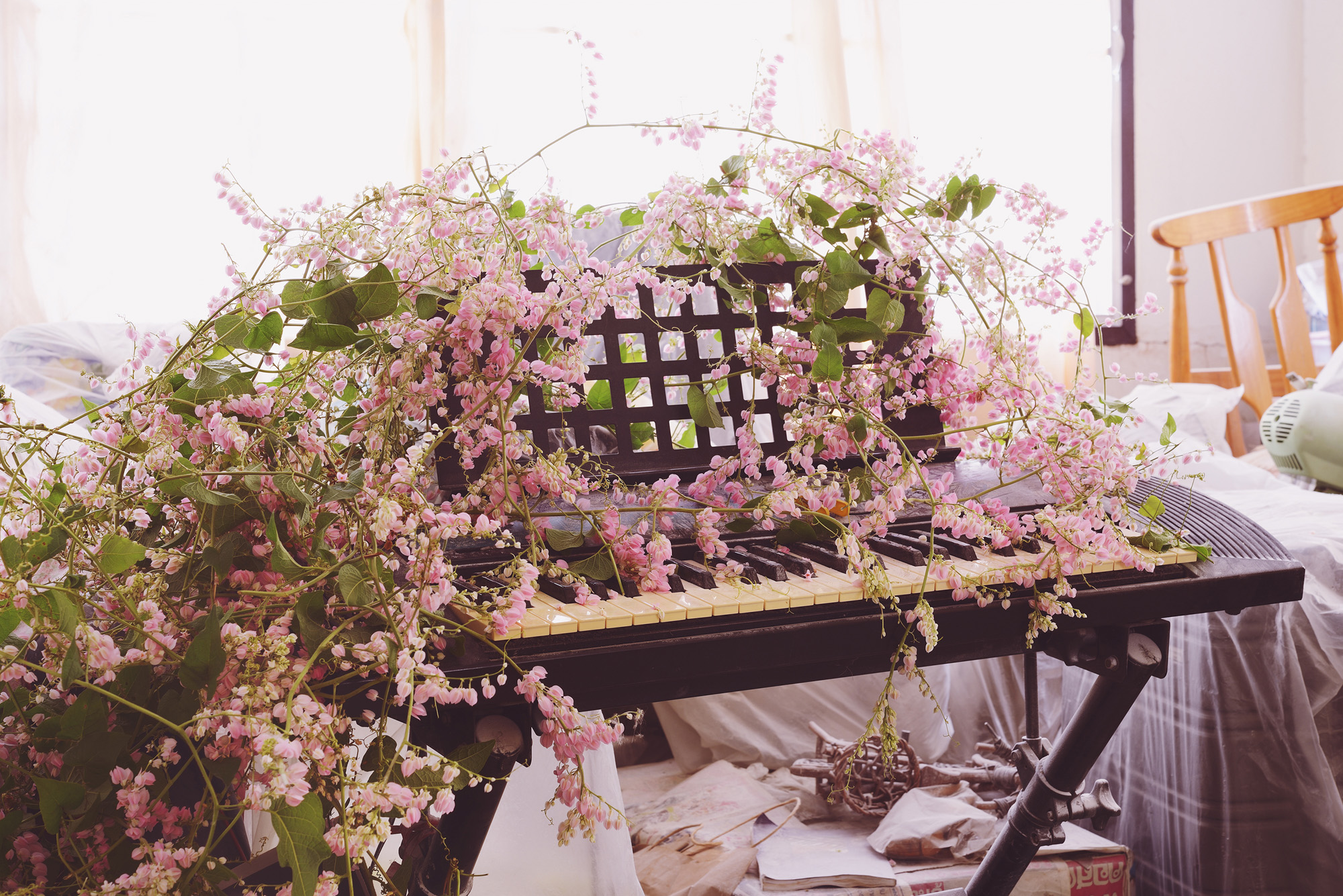
Demonstrating a perception of invasion through their subject matters, several works stressed on the neglect experienced by the marginalized members of queer communities. In Naraphat Sakarthornsap’s photography series Ignorant Bond (2017–19), native Thai flowers envelop themselves around common household goods, symbolizing the omnipresence of queerness in even the most unnoticeable corners. Walking across the gallery, one could not ignore the overwhelming scent from Floryan Varennes’s installations La Meute and Millefleurs (both 2020). Situated at the center of the show, the former’s transparent medical PVC armors suspended from the ceiling were coupled with the latter’s massive amount of French lavender seeds strewn across the floor. While lavender is known for its relaxative aroma and frequently seen in stress relief products, it irritates these senses in large quantities. The harsh scent inaudibly highlights how superficial, perfunctory types of “care” could perpetuate violence and silence the pain of others.
Referencing the astrological concept of the seemingly backward planetary movement in the sky and the resulting period of chaos, the show “Retrograde” reminds us of the need to reflect on unresolved issues from the past and our upbringing. Through celebrating a queer way of thinking, “Retrograde” introduced an alternative perspective for us to pause and examine the pain and emotions drowned by mainstream smile-inducing imageries.
“Retrograde” is on view at Galerie du Monde, Hong Kong, until August 13, 2022.
Angelique Santos is ArtAsiaPacific’s editorial intern.







